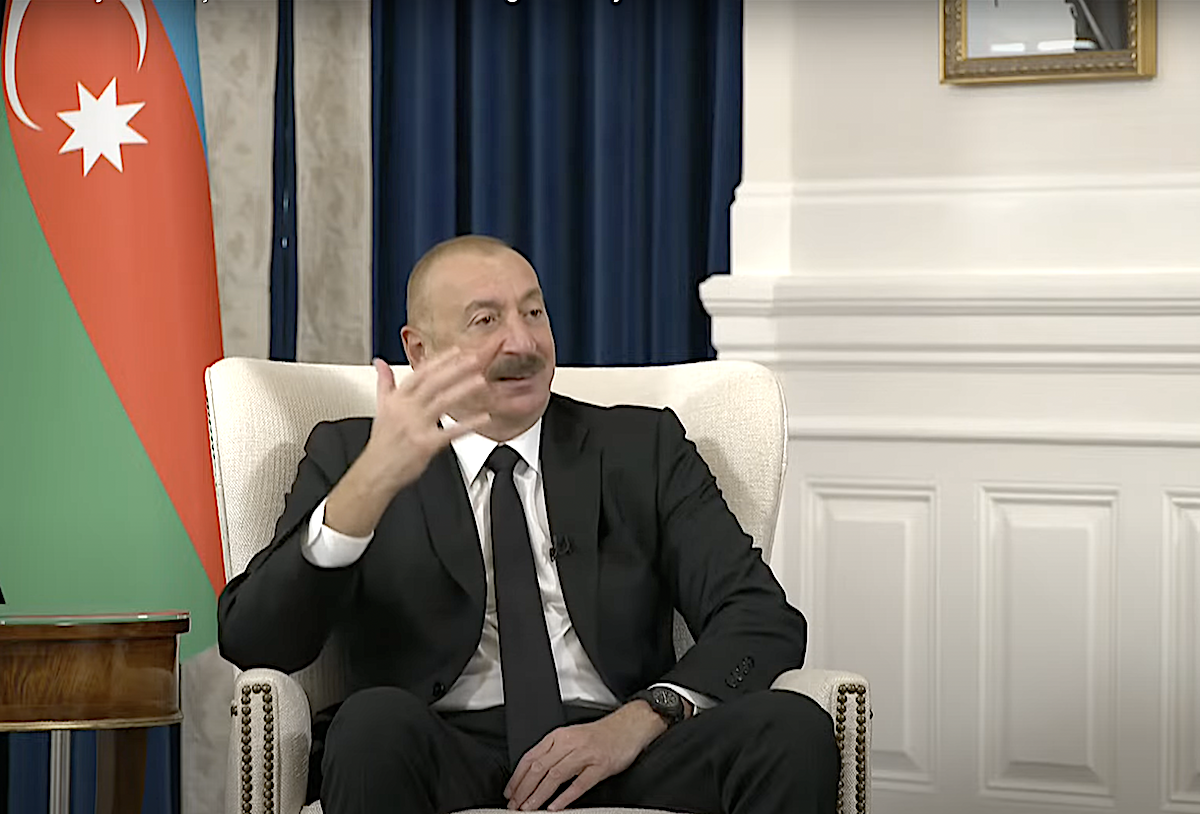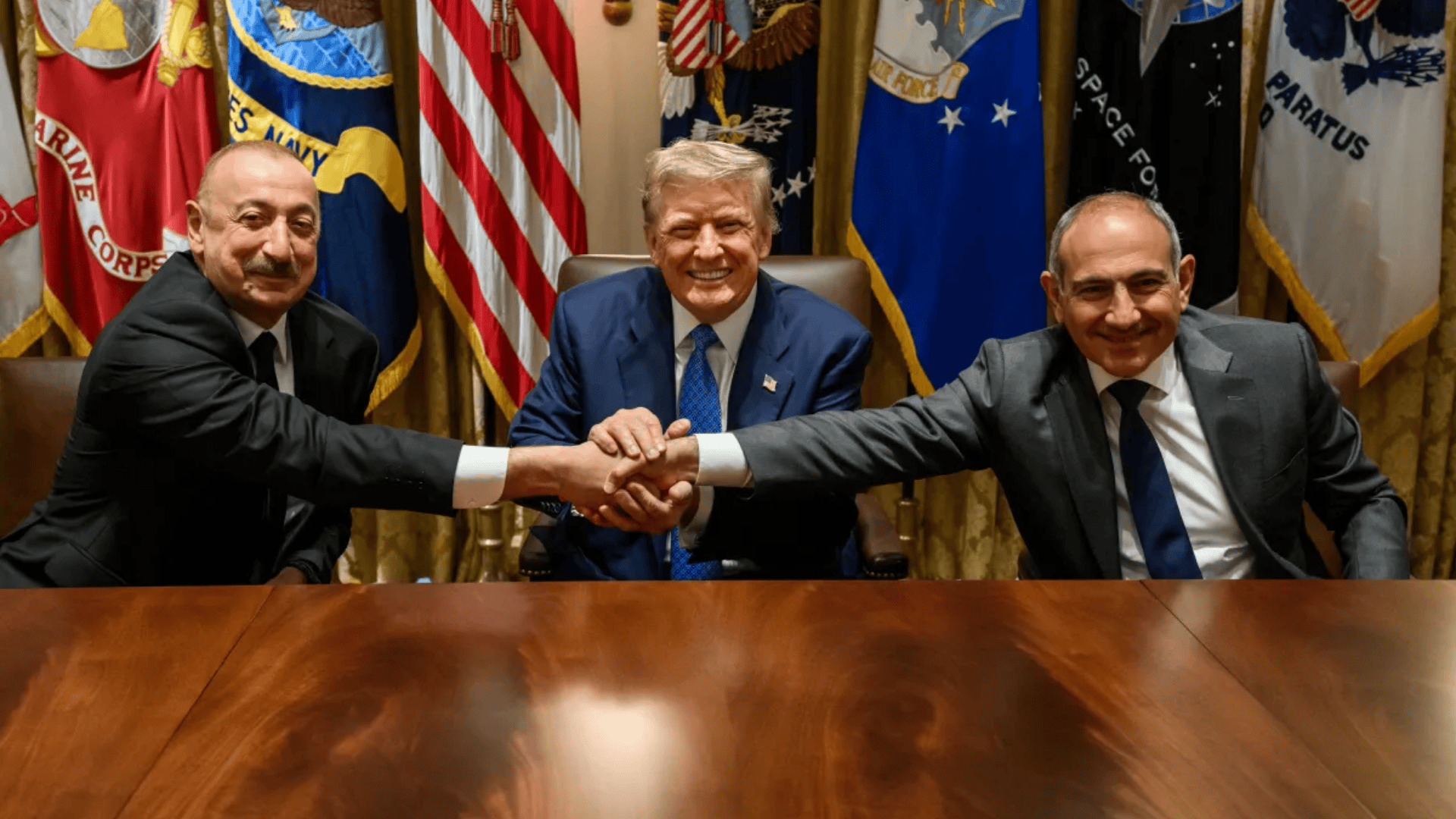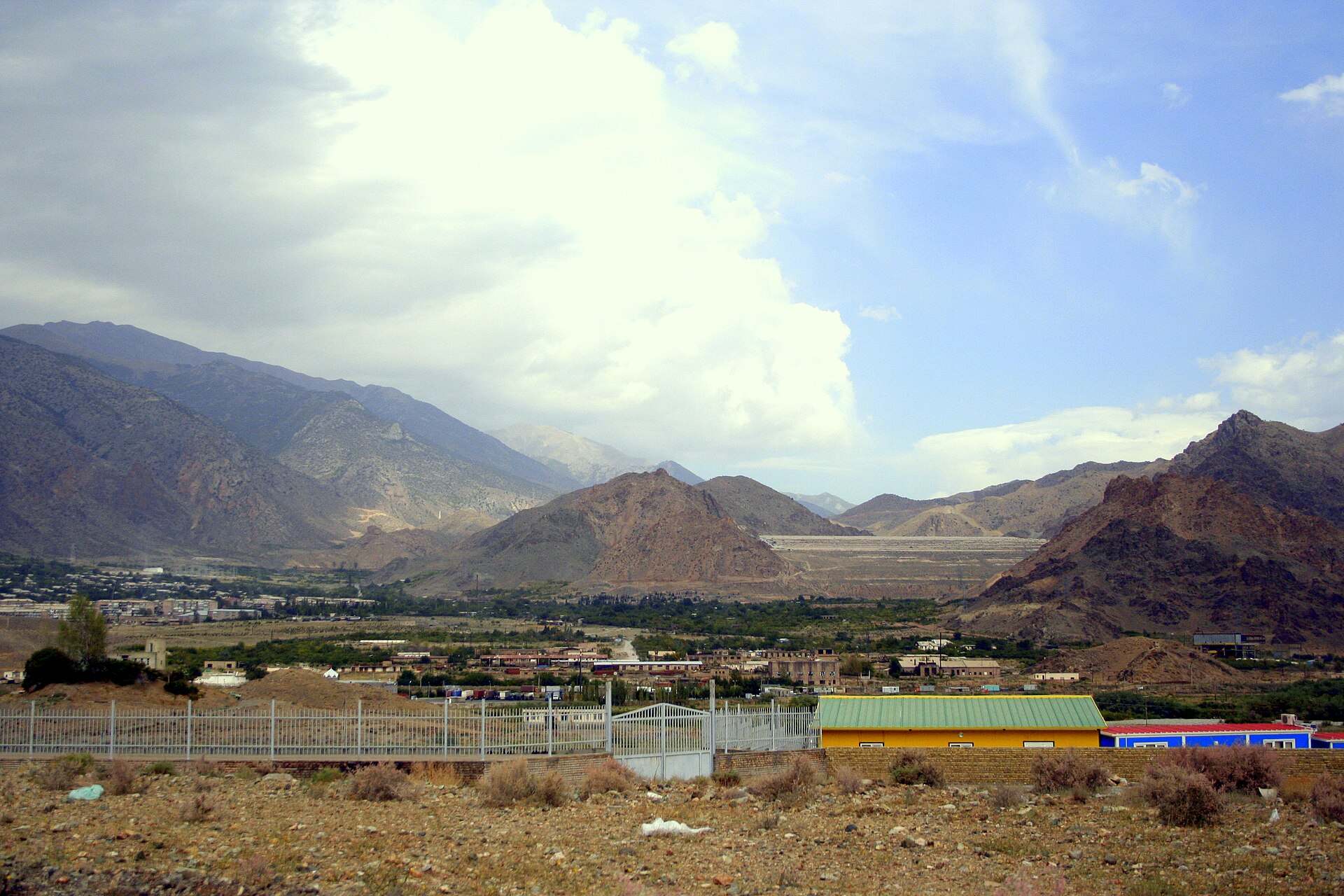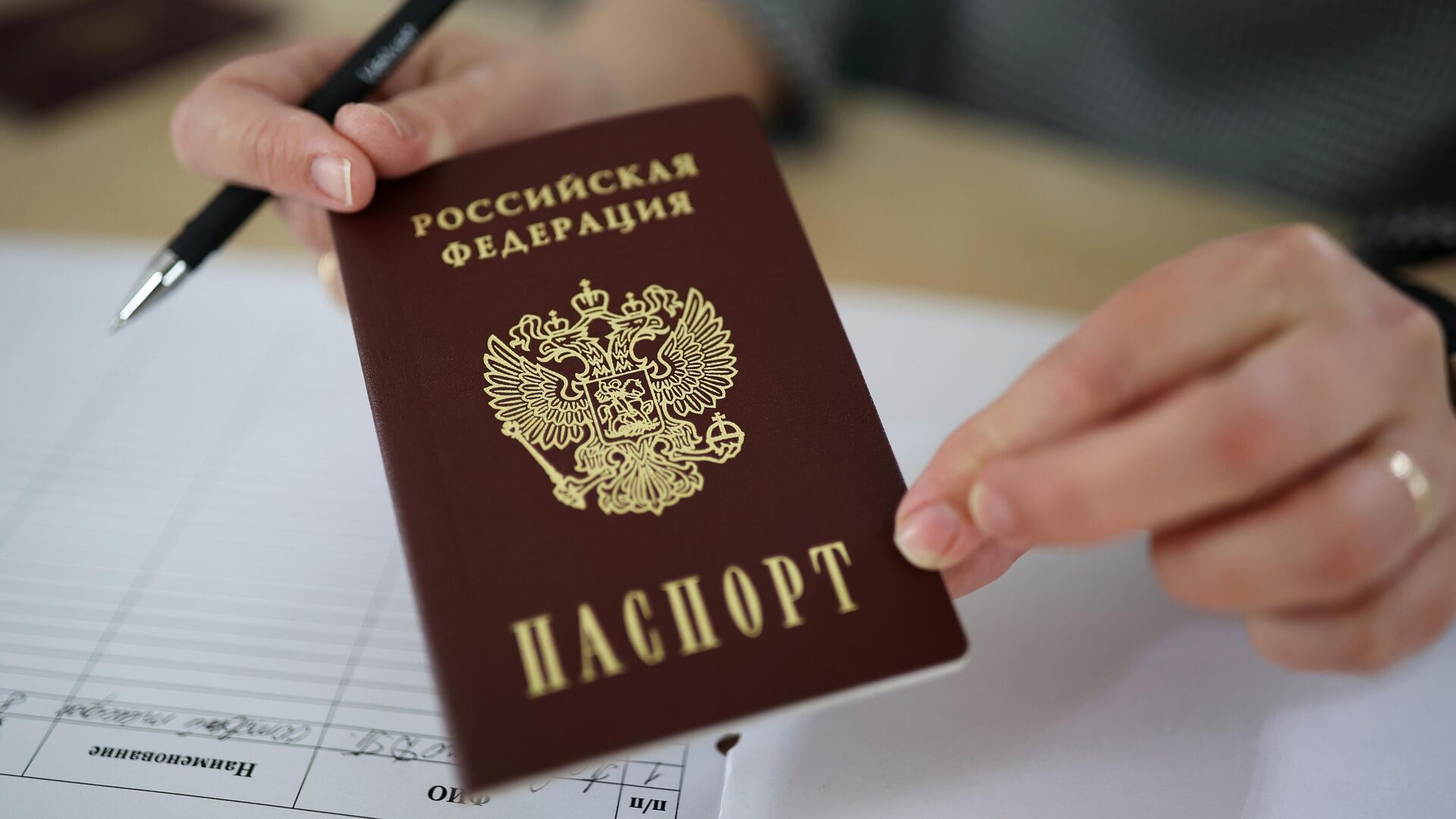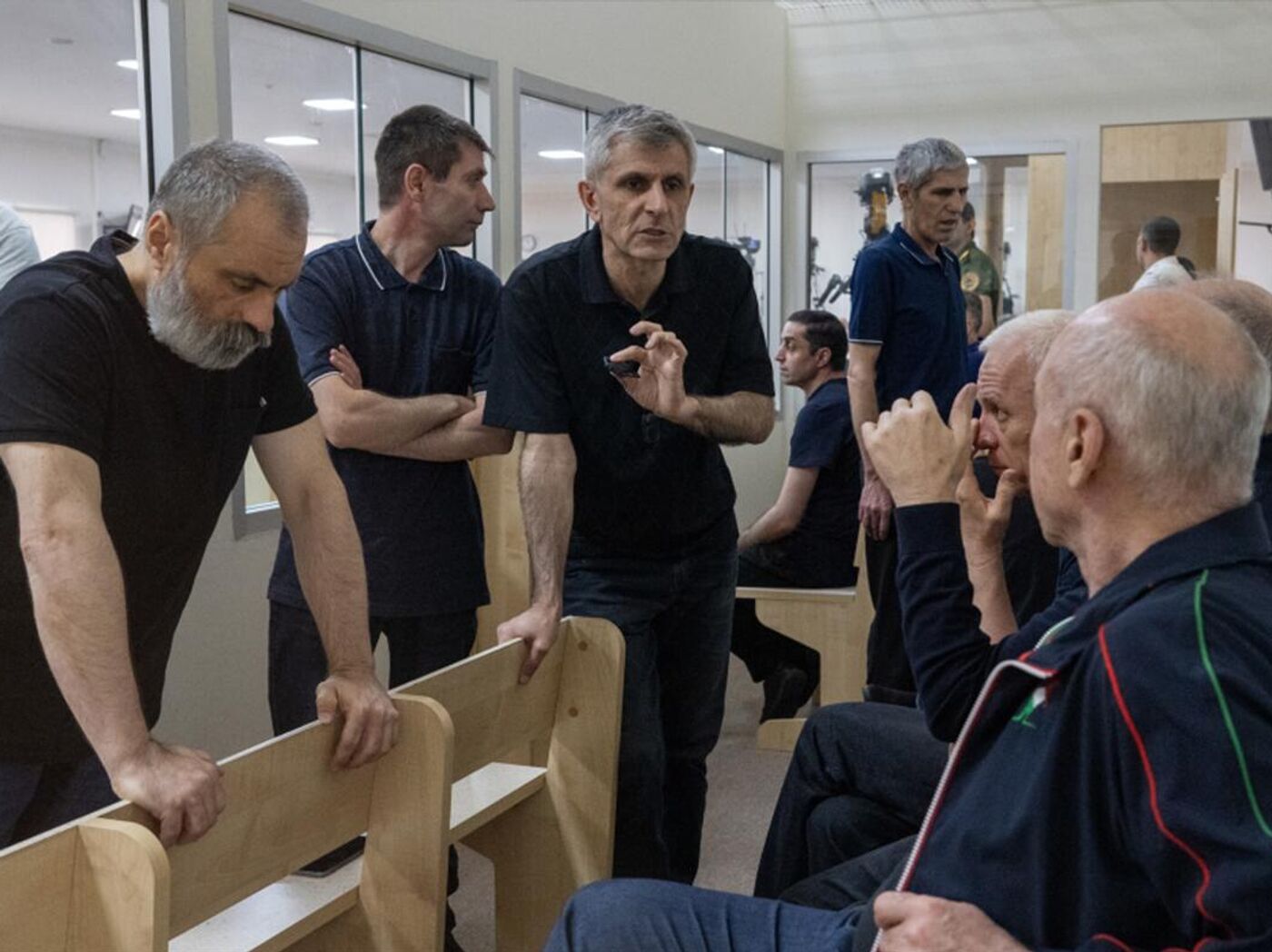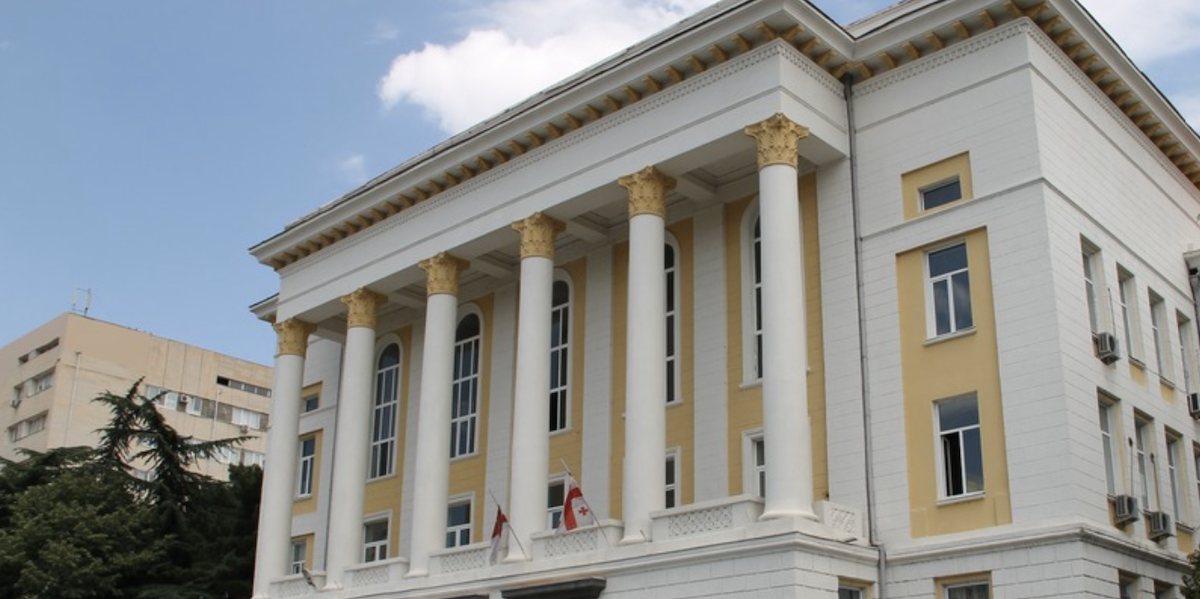Text of peace agreement between Azerbaijan and Armenia published
Azerbaijan–Armenia peace agreement text
The text of the Agreement on the Establishment of Peace and Interstate Relations between the Republic of Azerbaijan and the Republic of Armenia has been published.
Under the peace agreement, Azerbaijan and Armenia may sign separate deals in areas of mutual interest to foster cooperation in fields including the economy, transit and transport, the environment, humanitarian issues and culture.
The agreement commits both sides to condemn all forms of intolerance, racial hatred and discrimination, separatism, violent extremism and terrorism, and to combat these within their respective jurisdictions in line with their international obligations.
Neither side may invoke its domestic legislation to justify non-compliance with the agreement.
They also pledge not to take hostile actions against each other in diplomatic, informational or other spheres, nor to encourage or engage in such activities, and to hold regular consultations to this end.
The peace deal contains 17 articles, and no changes will be made to the text.
Full text of the agreement
The Republic of Azerbaijan and the Republic of Armenia (hereinafter, the Parties),
Realizing the urgent necessity of the establishment of a just, comprehensive and lasting peace in the region;
Desiring to contribute to that end through the establishment of inter-state relations;
Being guided by the Charter of the United Nations, the Declaration on Principles of International Law concerning Friendly Relations and Cooperation among States in accordance with the Charter of the United Nations (1970), the Final Act of the Helsinki Conference on Security and Co-operation in Europe (1975), and the Almaty Declaration of 21 December 1991, and aiming to develop relations on the basis of norms and principles enshrined therein;
Expressing their mutual will to establish good-neighborliness between them;
Have agreed to establish peace and inter-state relations between them on the basis of the following:
ARTICLE I
Having confirmed that the boundaries between the Soviet Socialist Republics of the former USSR became the international borders of the respective independent states and have been recognised as such by the international community, the Parties recognise and shall respect each other’s sovereignty, territorial integrity, inviolability of international borders and political independence.
ARTICLE II
In full compliance with Article I, the Parties confirm that they do not have any territorial claims against each other and shall not raise any such claims in the future. The Parties shall not undertake any act – including planning, preparing, encouraging or supporting such acts – that aims to dismember or impair, in whole or in part, the territorial integrity or political unity of the other Party.
ARTICLE III
In their mutual relations, the Parties shall refrain from the use of force or the threat of the use of force against the territorial integrity or political independence of the other Party, or in any other manner inconsistent with the Charter of the United Nations. They shall not allow any third party to use their respective territories for the use of force against the other Party in a way inconsistent with the UN Charter.
ARTICLE IV
The Parties shall refrain from intervening in each other’s internal affairs.
ARTICLE V
Within _ days after the exchange of instruments of ratification of this Agreement by both Parties, they shall establish diplomatic relations in accordance with the provisions of the Vienna Conventions on Diplomatic and Consular Relations (1961 and 1963, respectively).
ARTICLE VI
In full compliance with their obligations under Article I of this Agreement, the Parties shall conduct good faith negotiations between their respective border commissions, in accordance with the agreed regulations of the commissions, to conclude the Agreement on the delimitation and demarcation of the state border between them.
ARTICLE VII
The Parties shall not deploy along their mutual border the forces of any third party. Pending the delimitation and subsequent demarcation of their mutual border, they shall implement mutually agreed security and confidence-building measures, including in the military field, with a view to ensuring security and stability in the border regions.
ARTICLE VIII
The Parties condemn and shall combat intolerance, racial hatred and discrimination, separatism, violent extremism and terrorism in all their forms within their respective jurisdictions, and shall uphold their applicable international obligations.
ARTICLE IX
The Parties undertake to address cases of missing persons and enforced disappearances that occurred during the armed conflict involving both Parties, including through the exchange of all available information about these persons, directly or in cooperation with relevant international organisations, as appropriate. They acknowledge the importance of investigating the fate of these persons – including searching for and returning remains where appropriate – and ensuring that justice is served through proper investigations, as a means of reconciliation and building confidence. The corresponding modalities shall be negotiated and agreed upon in detail in a separate agreement.
ARTICLE X
In order to establish cooperation in various fields, including economic, transit and transport, environmental, humanitarian and cultural, the Parties may conclude agreements in areas of mutual interest.
ARTICLE XI
This Agreement does not infringe upon the rights and obligations of the Parties under international law and treaties concluded by each of them with other UN member states. Each Party shall ensure that none of its existing international engagements with third parties undermine its obligations under this Agreement.
ARTICLE XII
In their bilateral relations, the Parties shall be guided by international law and this Agreement. Neither Party may invoke the provisions of its internal legislation as justification for failing to comply with this Agreement. In accordance with the Vienna Convention on the Law of Treaties (1969), the Parties shall refrain from acts that would defeat the object and purpose of this Agreement prior to its entry into force.
ARTICLE XIII
The Parties guarantee the full implementation of this Agreement and shall establish a bilateral commission to oversee its implementation. The Commission shall operate on the basis of modalities to be agreed upon by the Parties.
ARTICLE XIV
Without prejudice to their rights and obligations under international law and other treaties binding them in their mutual relations, the Parties shall strive to settle any dispute regarding the interpretation or application of this Agreement through direct consultations, including within the Commission referred to in Article XIII. Should such consultations fail to produce a result acceptable to both Parties within six months, they shall seek other means of peaceful dispute settlement.
ARTICLE XV
Without prejudice to Article XIV, the Parties shall withdraw, dismiss or otherwise settle all interstate claims, complaints, protests, objections, proceedings and disputes related to issues existing between them before the signing of this Agreement in any legal forum within one month from its entry into force, and shall not initiate such claims, complaints, protests, objections or proceedings thereafter. They shall also refrain from involvement in any way in such actions brought against the other Party by any third party.
The Parties shall not take, encourage or participate in any hostile action against each other contrary to this Agreement in diplomatic, informational or other fields, and shall conduct regular consultations to this end.
ARTICLE XVI
This Agreement shall enter into force following the exchange of instruments notifying the completion of internal procedures in accordance with the national legislation of each Party. It shall be registered in conformity with Article 102 of the Charter of the United Nations.
ARTICLE XVII
This Agreement is concluded in the Azerbaijani, Armenian and English languages, all three texts being equally authentic. In the event of a divergence in the interpretation of any provision among the authentic texts, the English text shall prevail.
Context
- In autumn 2020, a 44-day war broke out between the armed forces of Azerbaijan and Armenia, known as the second Karabakh war. As a result, Azerbaijan regained control over part of Karabakh and seven adjacent districts.
- On 19 September 2023, Azerbaijan carried out a local military operation in Karabakh.
- On 28 September, the president of the self-proclaimed Nagorno-Karabakh Republic, Samvel Shahramanyan, signed a decree dissolving the republic.
- On 15 October 2023, president Ilham Aliyev declared in a speech in Khankendi that Azerbaijan had fully restored its sovereignty, resolved the Karabakh issue and ended the conflict.
- Fourteen people are currently in custody in Azerbaijan, including former presidents of the self-proclaimed Nagorno-Karabakh Republic Arkadi Ghukasyan, Bako Sahakyan and Arayik Harutyunyan; former foreign minister David Babayan; parliamentary speaker Davit Ishkhanyan; and generals Levon Mnatsakanyan and Davit Manukyan. Trials are under way in Baku.
- The peace treaty between Azerbaijan and Armenia has not yet been signed.
Azerbaijan–Armenia peace agreement text
News in Azerbaijan










